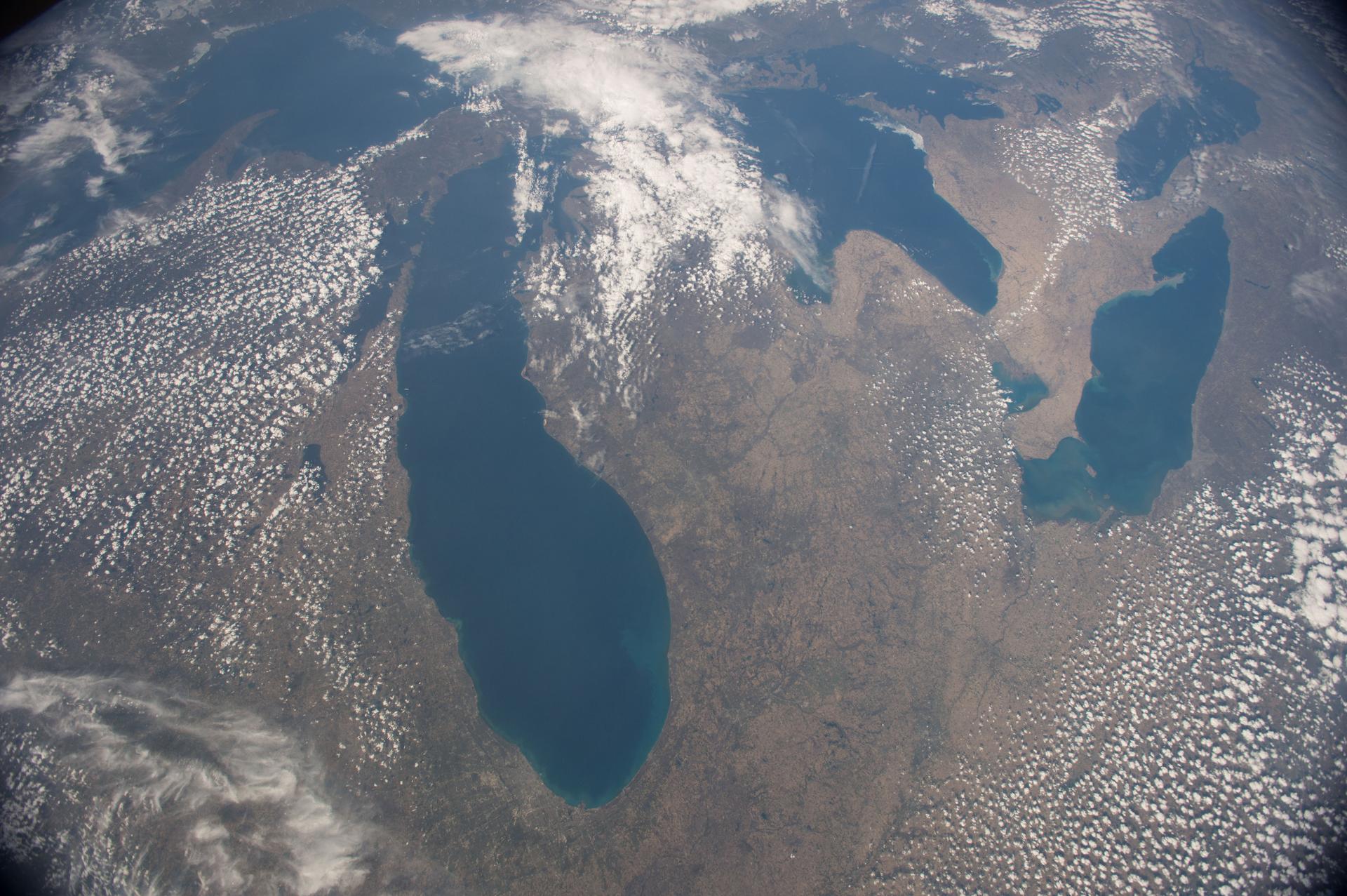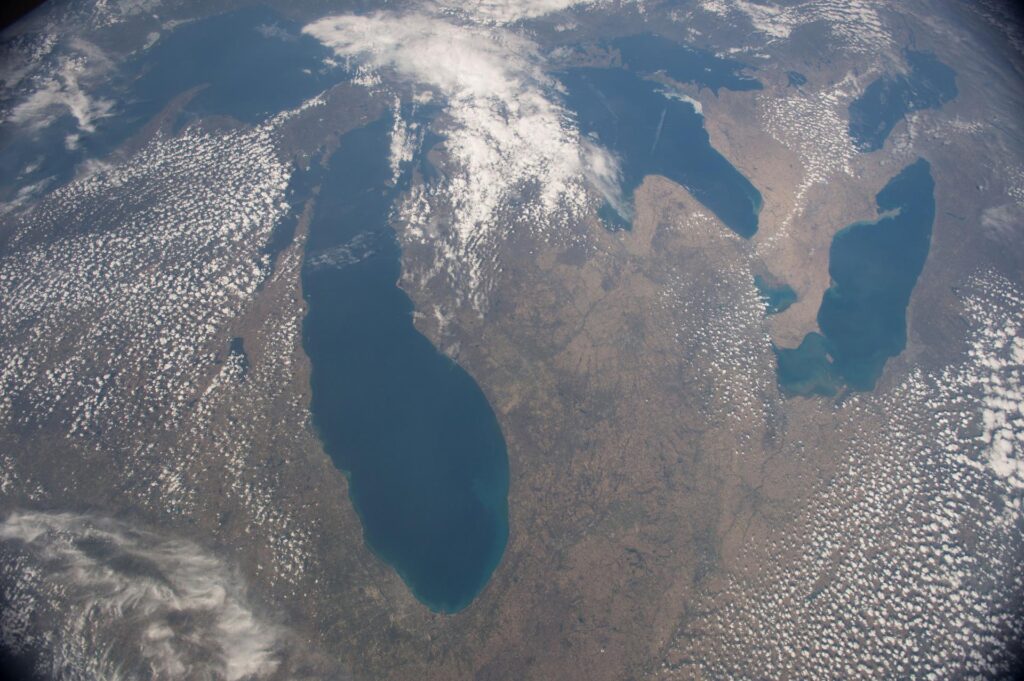
U-M’s MI-Hydrogen to participate in new Midwest hydrogen hub
The U.S. Department of Energy announced today that the Midwest Alliance for Clean Hydrogen is selected as regional clean hydrogen hub.

The U.S. Department of Energy announced today that the Midwest Alliance for Clean Hydrogen is selected as regional clean hydrogen hub.
Michigan’s hydrogen initiative, MI Hydrogen, represents U-M in a new regional clean energy hub funded by the Department of Energy. Called the Midwest Alliance for Clean Hydrogen (MachH2), the hub is a coalition of more than 70 public and private organizations across Illinois, Indiana, Kentucky, Michigan, Missouri and Wisconsin.
“The upper midwestern states are natural leads for expanding the production, transportation and use of hydrogen in transportation and industrial applications in the United States,” said Todd Allen, co-director of MI Hydrogen and the Glenn F. and Gladys H. Knoll Department Chair of Nuclear Engineering and Radiological Sciences.
“The MachH2 team combines a unique foundation in hydrogen production using zero-carbon technology with community-connected programs in workforce development and environmental justice. The result will be transformational approaches towards a clean energy future. MI Hydrogen looks forward to supporting both the hub and the State of Michigan in this transition,” he added.
The energy hub is focused on building the hydrogen industry in the Midwest, using the region’s carbon-free energy to create a clean hydrogen economy and reduce emissions across multiple heavy-emitting sectors. As Allen explained, the hub seeks to break the chicken-and-egg problem of energy users who are reluctant to adopt hydrogen technologies when they don’t know where the supply comes from—and energy suppliers who haven’t been ready to produce hydrogen and build hydrogen infrastructure without a sure market.
“The Midwest is showing the nation that by working together, we can grow our economy, create good-paying jobs and bring business investments to our region,” said Michigan Governor Gretchen Whitmer.
“Michigan is proud to work with our neighbors to build up our hydrogen industry and lead the future of the emerging clean energy sector. Michigan is leading the nation in clean energy and electric vehicle projects and jobs. With MachH2, we will continue reducing our emissions, improving public health outcomes, and building a brighter future for generations to come,” she said.
The broad-based coalition behind MachH2 aims to deliver on the promise of the clean hydrogen industry, producing regional benefits including high-quality jobs, improved infrastructure and air quality, investment in historically marginalized communities and significantly reduced carbon emissions.
“This is a historic day for MachH2 and the entire Midwest,” said Dorothy Davidson, CEO of MachH2. “Our hub and the region bring an unparalleled supply of clean energy, significant regional hydrogen demand, heavy industry and an ideal location at the crossroads of America—all of which was recognized by the US Department of Energy’s selection of MachH2. Our hub will scale the production and delivery of abundant, reliable and increasingly affordable clean hydrogen to support our national climate goals in the coming decade, all while creating jobs and lifting up underrepresented communities that have been overburdened by pollution.”

MI Hydrogen and the other university partners will support the hub’s efforts to measure the climate and economic impacts of hydrogen technologies and industry, through life cycle and techno-economic analysis, as well as the overall community benefits plan.
“University of Michigan is excited to collaborate with Northwestern, Argonne National Lab, Idaho National Lab and industry partners from Michigan and other Midwest states to evaluate the environmental and economic performance of the MachH2 hub, which is tackling difficult-to-decarbonize sectors of the economy,” said Gregory Keoleian, co-director of MI Hydrogen, co-director of the Center for Sustainable Systems at the School for Environment and Sustainability, and the Peter M. Wege Endowed Professor of Sustainable Systems.
“Using life cycle assessment methods, we will analyze the carbon reduction benefits from the deployment of hydrogen technologies and inform the scale-up and expansion of the hub to contribute to broader national climate policy goals,” Keoleian added.
MachH2 is a multi-state coalition of public and private entities representing every phase in the hydrogen value chain. The alliance includes a cross section of carbon-free energy producers, clean energy developers, hydrogen technology providers, utilities, major manufacturers, national labs and leading hydrogen technology development and deployment institutions, world-class universities, and groups focused on environmental justice. Read the announcement from MachH2.
The U.S. Department of Energy’s Office of Clean Energy Demonstrations (OCED) was established to accelerate clean energy technologies and fill a critical innovation gap on the path to achieving our nation’s climate goals of net zero emissions by 2050. OCED’s mission is to deliver clean energy demonstration projects at scale in partnership with the private sector to accelerate deployment, market adoption, and the equitable transition to a decarbonized energy system. The regional clean hydrogen production and distribution hub program is funded under the Infrastructure Investment and Jobs Act.